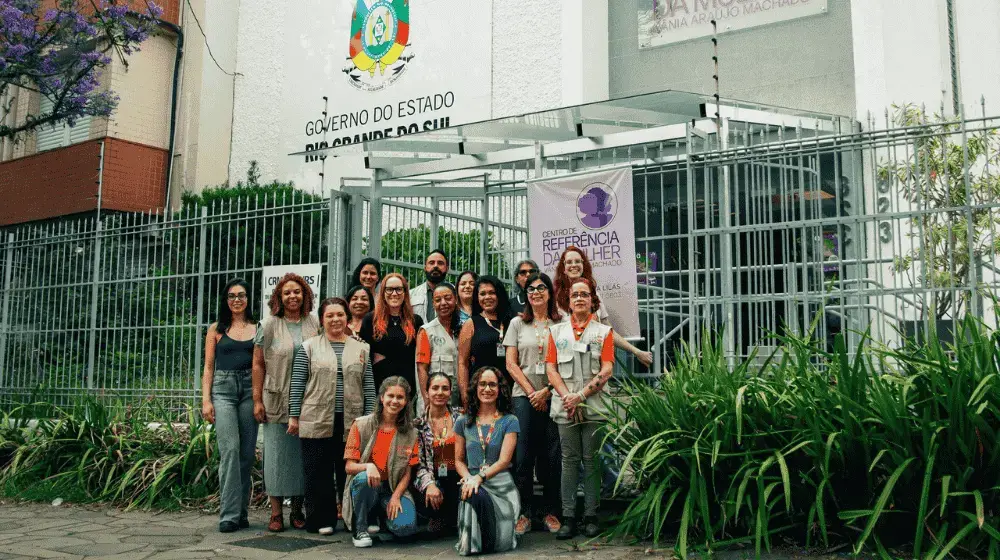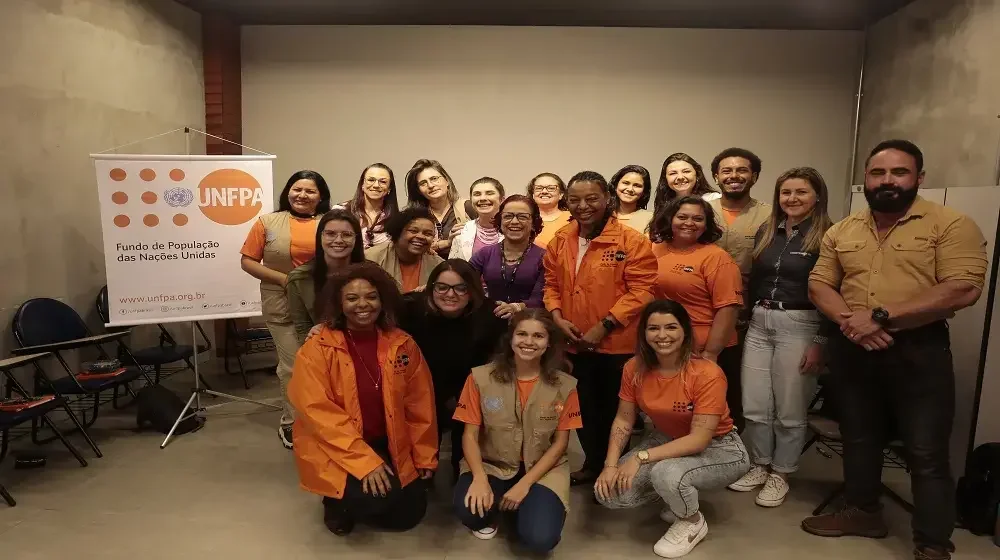Knowing it wasn’t an easy decision to make, Magdali Bronn, 41, decided that she and her four kids would find a new path in the nearby country, Brazil. Magdali and her husband fought, during a long time, to have access to basic services in her country, mainly health services: he was infected with Malaria and passed away at the end of 2018. A short time after, the youngest sibling of Magdali started to feel a little discomfort in her ears. It was an otitis, an ear infection that was getting worse everyday and soon needed chirurgical intervention. Decided to not face the same economic and health issues again, Magdali saw herself compelled to leave the country in search of support for her daughter’s disease.
Magdali fondly remembers the date of February 14, day which, in Venezuela, are celebrated love and friendship. That was when she and little Alejandra arrived in Pacaraima, brazilian city in the Brazil-Venezuela border. They arrived in the Scanning Station of Operação Acolhida, the federal government space where health care and other services are provided to migrants and refugees.
“I was received by UNFPA’s team in the Friendly Space, they treated me very well. I explained my situation and the situation of my daughters, then I heard her treatment would be possible here. It was, finally, a happy day”, she says. The Population Fund dedicated to her specialized attention and gave the needed orientations to solve the problems of Alejandra.
“I was very afraid when I left Venezuela, we had to cross many harsh situations to arrive here. We got rides, and didn’t have where to sleep neither eat, we also walked long hours, day and night. It was a very traumatic experience for me and my children, but when we got here I knew all the sacrifices were worth”, explains.
The United Nations Population Fund gives support to women that, as Magdali, arrives in situation of extreme vulnerability. The sensitive listening provided in the attention spaces located in the border aims to give the best support and following up the demands and needs. Cases as Alejandra’s are addressed to the public health network, that also provides medical and specialized attention.
Today, Madgali shows only joy. The UNFPA keeps up the situation of the migrant and her family, who are waiting in the line for the interiorization process, an initiative of the federal government response that gives the opportunity to migrants and refugees in Boa Vista to travel to other states. They wait for a chance to go to Brasília, the capital of the country, to continue the treatment of Alejandra.




